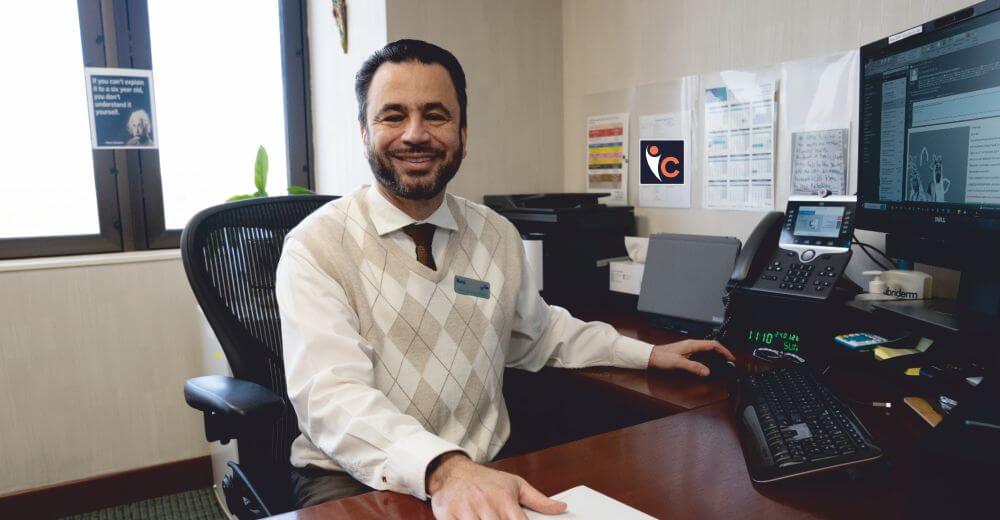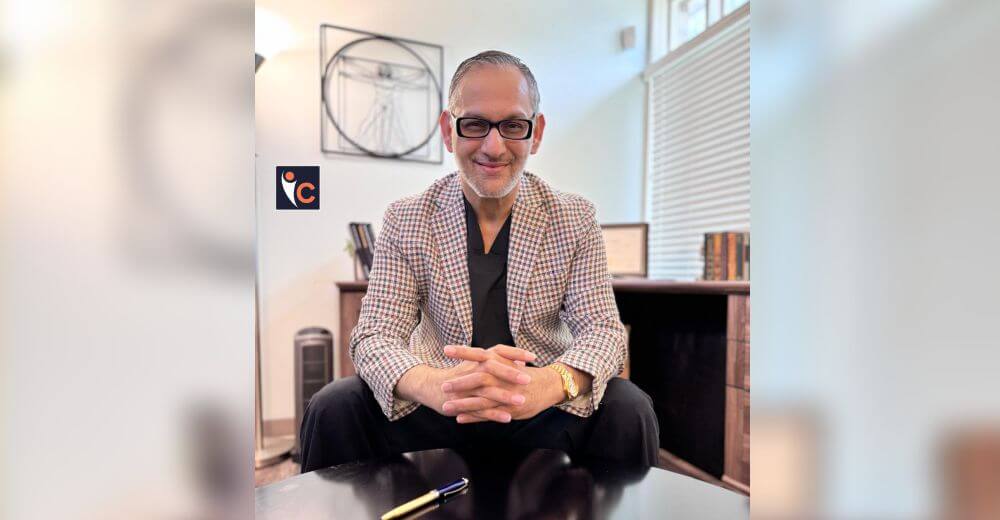The journey of individuals suffering from acquired brain injuries is filled with challenges, necessitating not just care but a comprehensive support system tailored to their unique needs. It is within this landscape that organizations like Vista Centre Brain Injury Services (VCBIS) emerge as institutions of hope and transformation.
As an Acquired Brain Injury (ABI) Solution Provider, VCBIS offers a comprehensive array of services tailored to the unique needs of individuals navigating life post-injury. From community-based support to rehabilitation programs, assisted living, day programs, outreach support, residential programs, and support groups, VCBIS is committed to guiding each person towards a brighter tomorrow.
At the core of VCBIS’s mission is a pledge to prioritize individualized care. They understand that no two journeys are alike, and thus, their approach revolves around tailoring services to meet the specific needs of each client. This dedication to personalized care sets them apart, ensuring that every individual receives the support, service, and education necessary to thrive.
Under the leadership of Denis Boileau, the Executive Director, VCBIS has grown into a symbol of excellence in the domain of brain injury services. Mr. Boileau’s leadership is characterized by a commitment to collaboration and client-focused care. His vision has driven VCBIS to the forefront of the field, earning them a reputation as a leader in compassionate, effective support for ABI survivors.
From its dedicated Board of Directors to their long-term support programs, every facet of VCBIS’s operation is infused with a passion for empowering lives.
In this exclusive feature, we dive into the profound impact of VCBIS’s work, exploring the stories of resilience, hope, and transformation that define their journey.
Mr. Boileau’s Journey of Change and Growth
In his extensive tenure within the healthcare industry, Mr. Boileau has traversed various domains, acquiring invaluable experience across federal, provincial, and local ministries. With a predominant focus on the non-profit sector, he has enhanced his expertise in project oversight, evaluation, and management, culminating in over 15 plus years of executive leadership.
Reflecting on his journey, Mr. Boileau shares, “My niche is to join an agency and take it to the next level whether it be in increasing its financial revenues, staffing or services. Basically, to manage the growth of an organization.”
Amidst the dynamic landscape of Ontario’s healthcare system, Mr. Boileau’s proficiency in managing growth and change emerges as a crucial skill for VCBIS.
Throughout his career, Mr. Boileau has tackled complex themes, from workers’ injuries to mental health and addictions. Now, his focus lies on individuals struggling with brain injuries, underscoring his inclination for addressing multifaceted needs across diverse client populations.
Empowering Voices
Driven by a passion to empower individuals and amplify the voices of vulnerable populations, Mr. Boileau embarked on a healthcare journey fueled by a desire to enhance quality of life and advocate for change.
Recognizing the inherent complexities of brain injury care, Mr. Boileau emphasizes the importance of tailored healthcare plans, affirming, “A model of care that fits everyone is not feasible when dealing with a brain injury. I guess it simply completes my journey in healthcare of working with simple cases to moving on to more and more complex care.”
Amidst the challenges, Mr. Boileau finds excitement in the field’s rapid evolution, propelled by ongoing research initiatives. He perceives this as an opportunity to make tangible strides in addressing the multifaceted needs of individuals with brain injuries.
At the core of his mission lies a profound understanding: how can one navigate life’s challenges when the very essence of cognitive function is disrupted? It is within this context that Mr. Boileau recognizes the significance of even the smallest steps in behavior or lifestyle changes, witnessing the tangible impact, whether immediate or long-term.
Mission, Vision, and Philosophy
Mission Statement:
VCBIS collaborates with individuals impacted by Acquired Brain Injury, offering community-based support, service, and education to maximize their life potential.
Vision:
To deliver the highest quality services in the field of Acquired Brain Injury, setting a benchmark for excellence and innovation.
Philosophy:
VCBIS upholds the belief in each individual’s capacity for development and societal participation. It provides participants with opportunities to progress toward their maximum potential across emotional, social, vocational, educational, cognitive, spiritual, and financial dimensions, cultivating dignity and confidence.
The Board serves as the entity accountable to the diverse funders and is entrusted with setting the strategic direction and goals of the organization, ensuring alignment with our mission and vision.
Navigating the Complexities
The healthcare landscape in Ontario has two prominent factors that employ significant influence: the dynamic shifts within the healthcare system itself and the need for growth. This shifting territory is underscored by a rising prevalence of acquired brain injuries, attributed in part to an aging population. However, another critical contributor lies in under-addressed sectors such as incarceration, homelessness, and among veterans, where a staggering 30% suffer from brain injuries.
The reality of under-serviced areas underscores the pressing need for expanded services, yet this requirement is met with the harsh reality of limited funding. Mr. Boileau emphasizes this challenge, stating, “We are looking for different sources of funding either from government sources or the private sector, as a brain injury can occur to anyone, and the effects on the individual, their caregivers, family, and friends are life-altering.”
From Crisis to Opportunity
The COVID-19 pandemic posed unprecedented challenges for VCBIS, necessitating a swift adaptation of service models to ensure continuity of care. With home visits being impractical at the time, the organization swiftly transitioned to offering virtual services. This adjustment presented challenges for both staff and clients, yet through diligent effort and adaptability, virtual services not only took root but succeeded, proving to be a beneficial alternative.
Another notable initiative undertaken by VCBIS is the implementation of a transition program, bridging the gap between hospital and community settings. Initiated five years ago, this innovative model of care involves collaboration between hospital counselors and community health agency personnel. By facilitating seamless transitions and comprehensive healthcare planning, this program ensures efficient care delivery from the outset while expediting the client’s transition to a community setting. The result is not only enhanced client care but also significant resource savings for the healthcare system.
Furthermore, VCBIS’s commitment to raising awareness about brain injuries is exemplified through its Brain Injury Awareness Day, held annually in June. This informative event brings together community members, clients, caregivers, and healthcare agencies for a day filled with expert speakers, testimonials, research insights, and policy discussions. Traditionally an in-person affair drawing over 200 attendees, the event is also adopting a virtual format in light of recent circumstances, expanding its reach and impact. Moreover, the organization’s dedication to accessibility is evident through its provision of free attendance for those with a brain injury or their caregivers, made possible through sponsorships received for the event.
Embracing Innovation
Mr. Boileau underscores VCBIS’s commitment to continuous improvement through the implementation of streamlined processes and technological advancements. A notable example is the integration of the Point Click Care system at one of the residences, revolutionizing how employee input, track, and access client information. By digitizing records, this system enhances efficiency, accessibility, and the overall quality of service provision.
While transitioning to such technologies inevitably entails challenges, the benefits are multiple. Not only does it elevate the quality of work for employees, but it also enhances the accuracy and accessibility of client records, consequently improving the standard of care provided.
By exploring avenues for automation and digitization, VCBIS aims to further optimize its processes, ultimately enhancing the quality and efficiency of its services.
The TBI Report Card
VCBIS has been actively engaged in the Traumatic Brain Injury Report Card (TBI Report Card) project for several years, making efforts to collect data from hospitals and community-based ABI providers. The primary objective of this initiative is twofold: to assess the services offered and measure their quality. By establishing standards for agencies to monitor and report on these annually, the TBI Report Card provides vital information to the Ministry of Health of Ontario, offering a comprehensive snapshot of service provision across different regions.
As Mr. Boileau explains, “This tool (TBI Report Card) translates the community’s needs as well as the quality of services offered and received.” While still a work in progress, continuous refinement and expansion of the TBI Report Card enhance its efficacy in determining service quality and identifying areas for improvement.
Moreover, beyond its intrinsic value in assessing service quality, the TBI Report Card holds potential as a catalyst for various business opportunities. By identifying regional needs and providing a basis for measuring services in both hospital and community health sectors, this tool not only informs decision-making but also lays the groundwork for strategic partnerships and innovation.
Milestone in ABI Care Expansion
One of the most significant milestones for VCBIS was the successful acquisition of funding for additional beds catering to individuals with acquired brain injuries. This achievement culminated in the establishment of a new wing in a rural setting, marking a departure from the predominantly urban landscape of existing facilities. However, securing this expansion necessitated establishing a novel partnership with the agency owning the building, thereby securing four beds within their establishment.
The implementation of this new model of care posed unique challenges, given that the facility is not owned by VCBIS. Despite this, VCBIS remains committed to providing exemplary care to its clients.
This achievement represents not only a significant expansion of VCBIS’s capacity to serve individuals with ABIs but also underscores the organization’s adaptability and commitment to innovation. By transcending traditional boundaries and forging new partnerships, VCBIS continues to broaden its impact and reach, ultimately enhancing the quality of care and support for individuals with ABIs in both urban and rural settings.
Building a Brighter Future
VCBIS’s Board has identified crucial needs within the agency, foremost among them being the need to address the housing shortage for the ABI community within the service area. Recognizing the pivotal role of proper housing in facilitating access to essential services, VCBIS envisions a housing model that caters to diverse ABI populations, ranging from mild to severe conditions, as well as specialized needs such as veterans, indigenous individuals, victims of violence, and the homeless. This innovative hub-and-spoke model centers around a core location housing professionals and core services, with surrounding houses dedicated to specific populations, ensuring tailored support and services for each group.
However, the realization of this model relies on securing funding, despite the potential cost savings in other areas such as emergency hospital visits and justice system expenses. Nevertheless, the benefits of such a model extend far beyond cost considerations, providing proper housing and services essential for client well-being.
Another pivotal aspect of VCBIS’s future trajectory involves expanding services to cater to specified sub-populations, including francophone, indigenous, incarcerated, homeless, and veteran populations. Recognizing the unique needs of each group, VCBIS aims to tailor services accordingly, enhancing expertise and service provision in these specialized areas.
Moreover, VCBIS is committed to advancing knowledge and improving outcomes through participation in research projects. By collaborating with local universities, VCBIS has already made strides in this regard, presenting research findings at prestigious conferences. Through continued engagement in research, VCBIS seeks to refine and optimize services for individuals with ABIs, contributing to advancements in the field and ultimately enhancing outcomes for clients.
Mr. Boileau underscores the transformative potential of these future initiatives, not only for VCBIS and its clients but for the broader community as well. By addressing crucial needs, expanding services, and advancing research, VCBIS is poised to create a brighter future for all stakeholders.
Read More: Click Here















